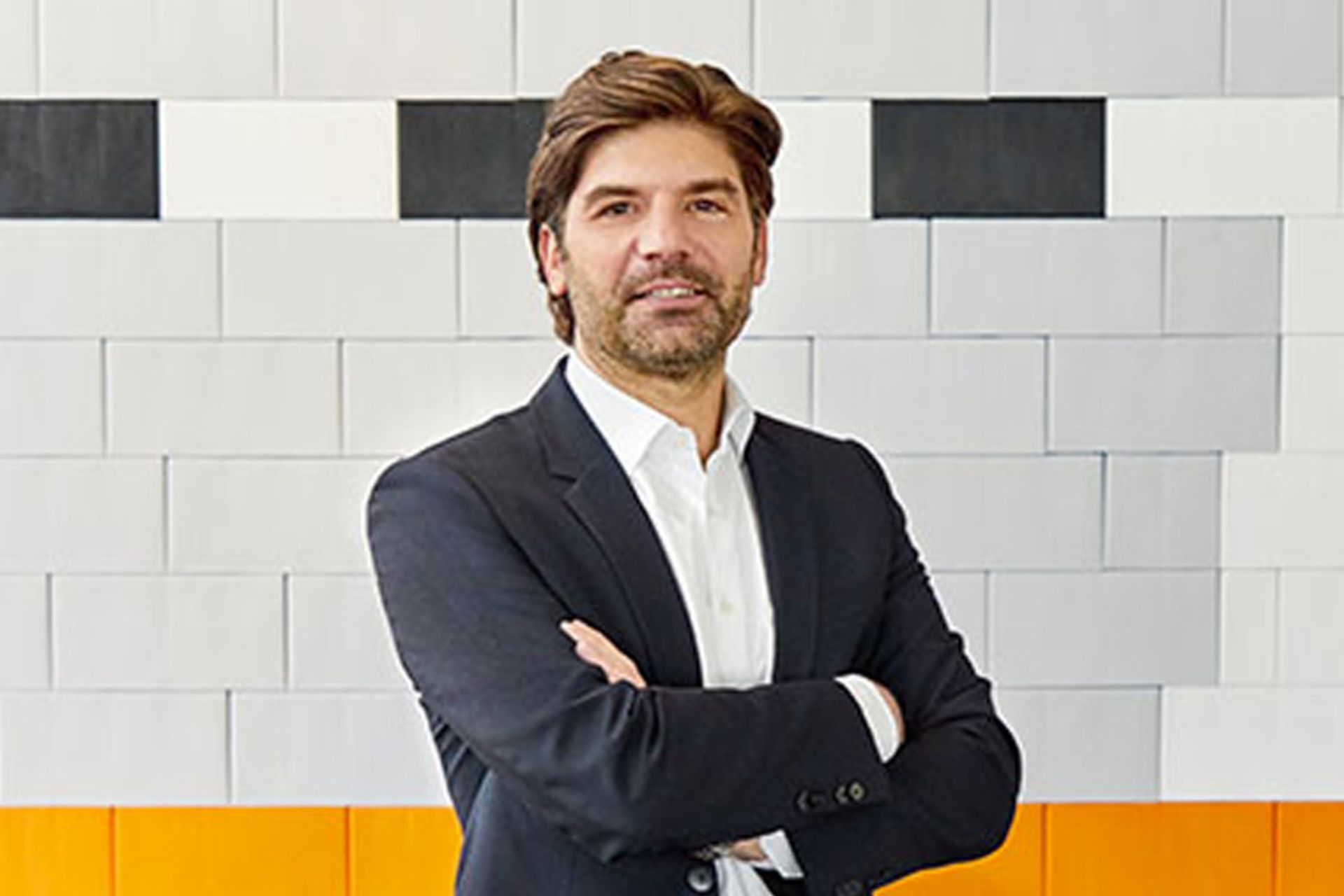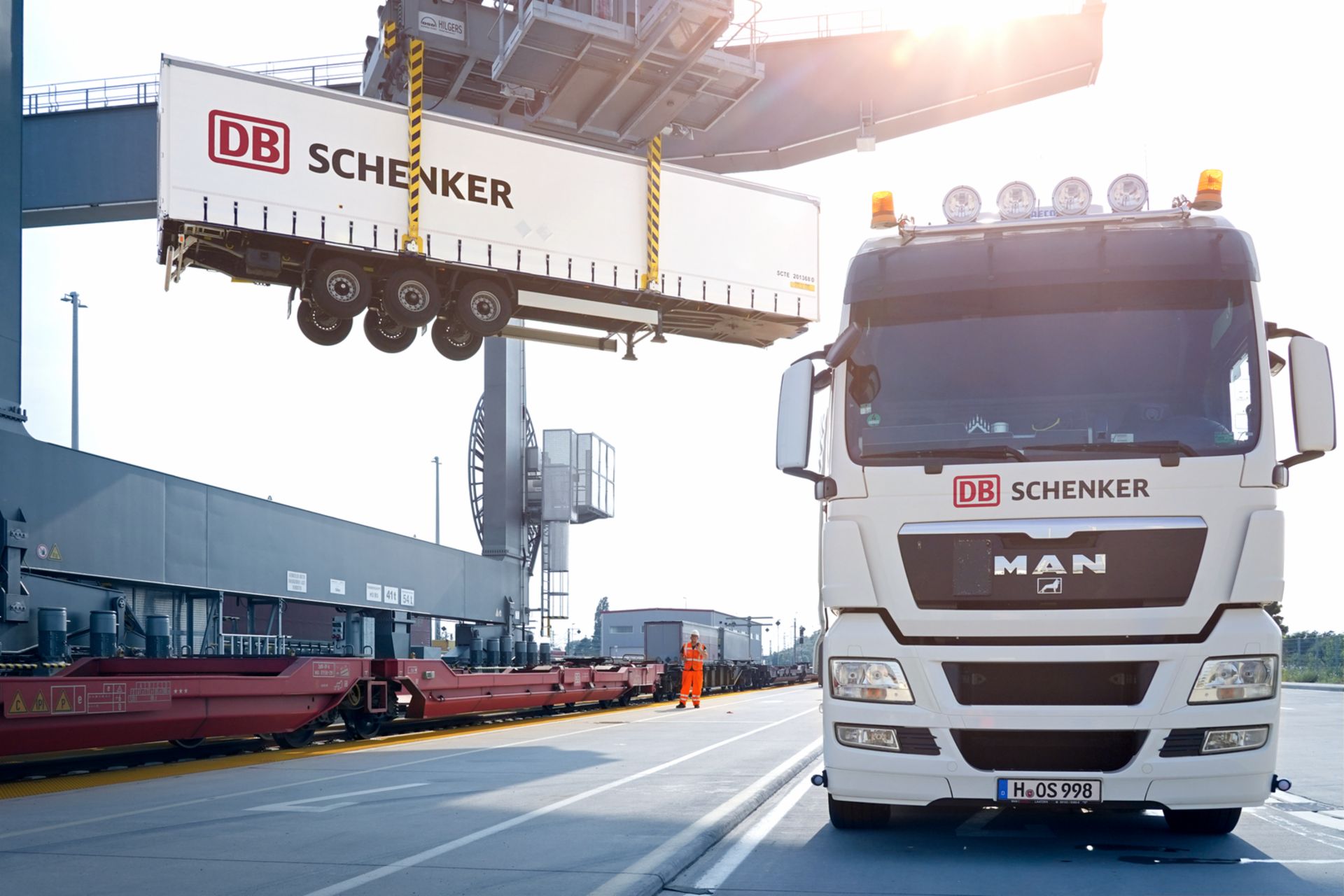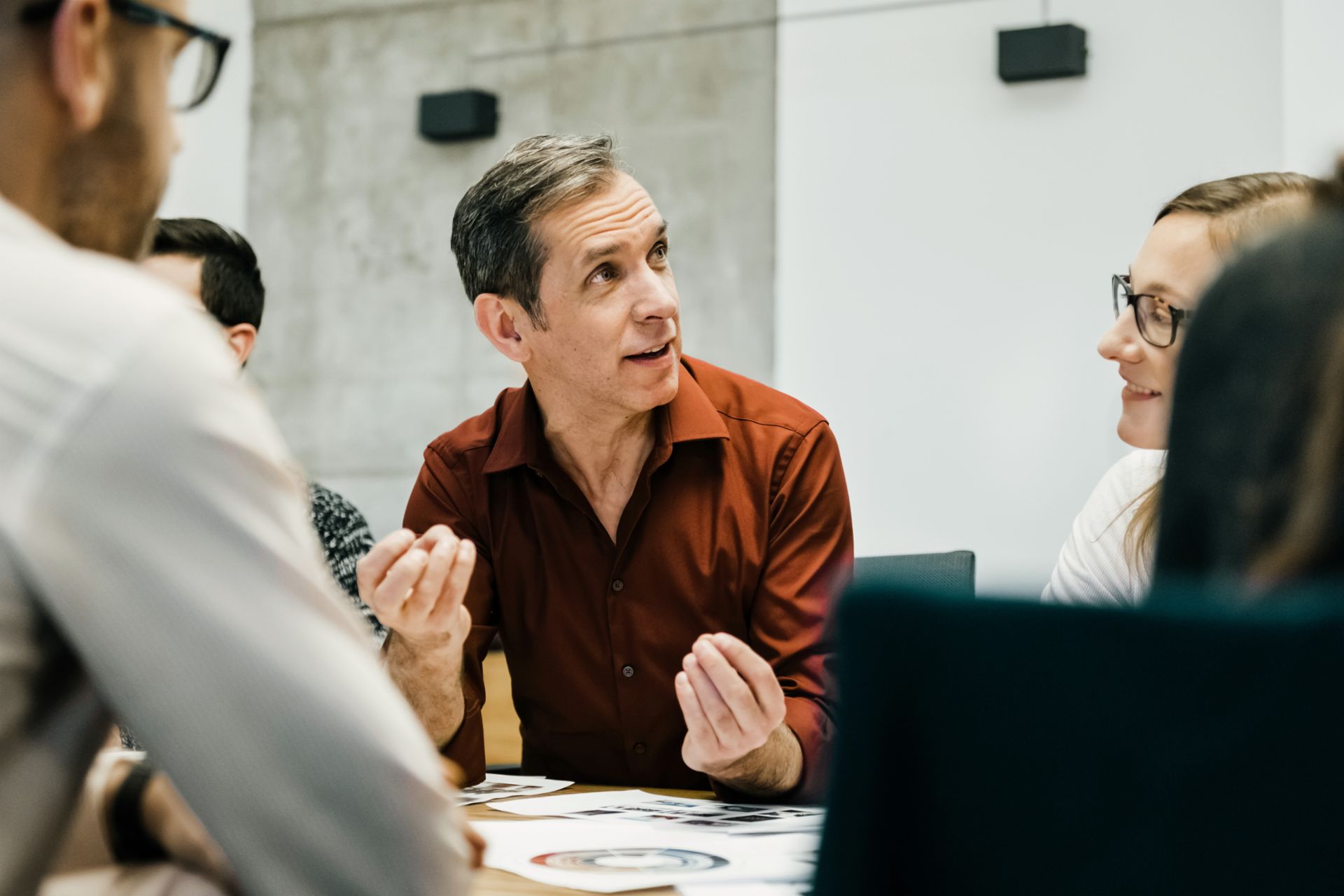New ideas for tomorrow’s transportation come alive when they provide a benefit for logistics companies or company logistics departments. That is why the TRATON GROUP brands are working closely with their customers. The latter’s needs are as diverse as the markets in which they operate. Three snapshots from three markets are presented below.
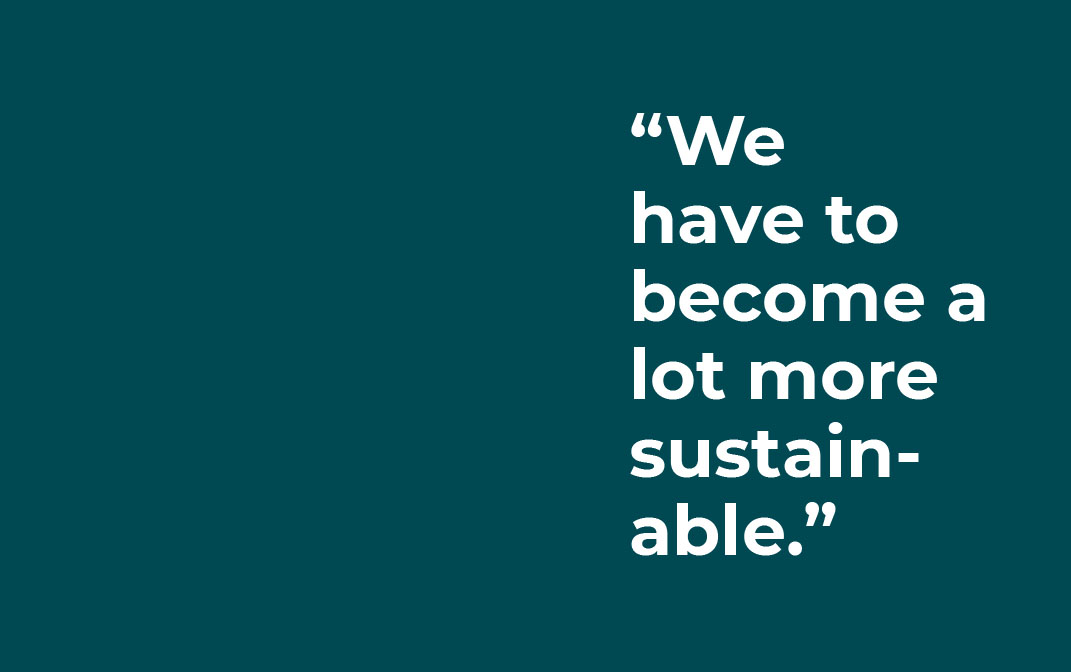
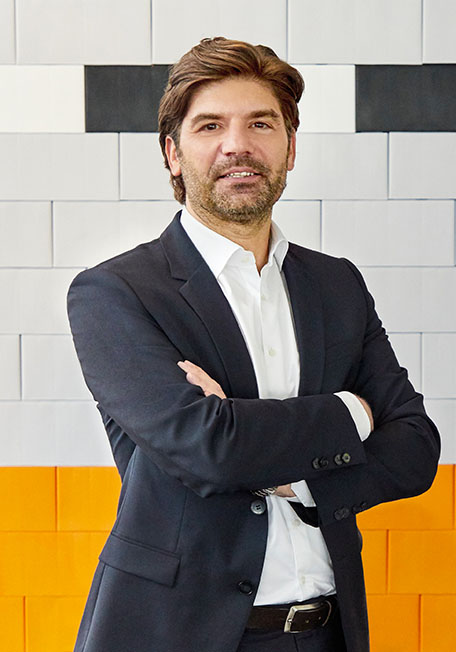
Helmut Schweighofer
CEO, DB Schenker Europe,
Deutschland
Responsible for the planet
DB Schenker services more than 32,000 scheduled freight routes in the whole of Europe, mainly in terminal-to-terminal transportation. Given this magnitude, reliability and efficiency are the most important features of a truck for Helmut Schweighofer, CEO for DB Schenker’s European business. “Life-cycle costs have the same relevance—we can always optimize a little more in that respect,” he says.
Austrian-born Schweighofer is not satisfied with the status quo when it comes to not only the daily operations, but also to the future of his industry. “We have to become a lot more sustainable,” insists Schweighofer with a view to the company’s goal of reducing greenhouse gas emissions by 50% by 2030. New drive technologies will play a crucial role in achieving that goal. For that reason, DB Schenker collaborates with leading manufacturers like MAN and Scania. “Because we are responsible for our planet and our future.”
That is why DB Schenker has been investing in the research and development of new solutions for many years. A current topic is what the freight terminal of tomorrow will look like, for example, so that new powertrains can be used in an optimized and efficient way. The logistics expert also focuses on partnerships in the area of automated driving. Many of the DB Schenker terminals are deliberately located very close to highways. “This gives us an ideal starting position to employ automated commercial vehicles,” says Schweighofer. The first platooning trial conducted with MAN and the Fresenius University still did not immediately meet all expectations in terms of reducing fuel consumption by 3% to 4% in the pilot run. However, it did show that “we can all learn with and from each other.”

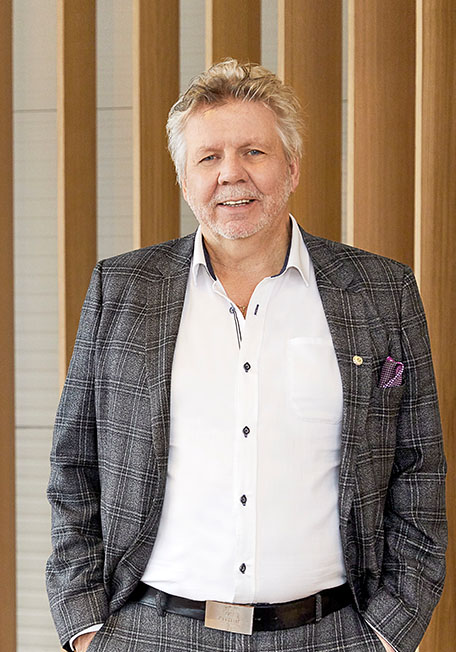
Hans Ahola
CEO, Ahola Transport, Finland
Fully automated processes
When Hans Ahola took over the transportation company from his father at the age of 27, he had six trucks. That number is now over 400. The Finnish businessman credits this growth primarily to the rigorous implementation of his dynamic business model. In his family-owned company, Ahola does things differently from many other freight forwarding companies: he doesn’t operate a distribution center, but rather transports the goods directly from the shipper to the recipient—often on the same day.
Back in the 1980s, drivers still had to check in from telephone booths to get the location of where they were supposed to deliver the goods. But in the 1990s, Ahola already began optimizing the daily route planning using computers. Because commercial software was not yet available, he had the software programmed and continuously developed in-house to meet his needs—and now provides this software to other logistics companies. “We’ve become an IT organization,” says Ahola, who was often behind the wheel himself back in the day. At the freight forwarder’s control center, his staff use screens to keep tabs on the fully automated processes.
Ahola has a long-standing partnership with Scania. As a young man, he fell in love with the legendary Scania LS140, and since then has backed the Swedish brand. Moreover, he also gets involved in the further development of new technologies—for example trialing platooning on Finnish roads. “Something has to be done about the shortage of drivers,” Ahola explains pragmatically.
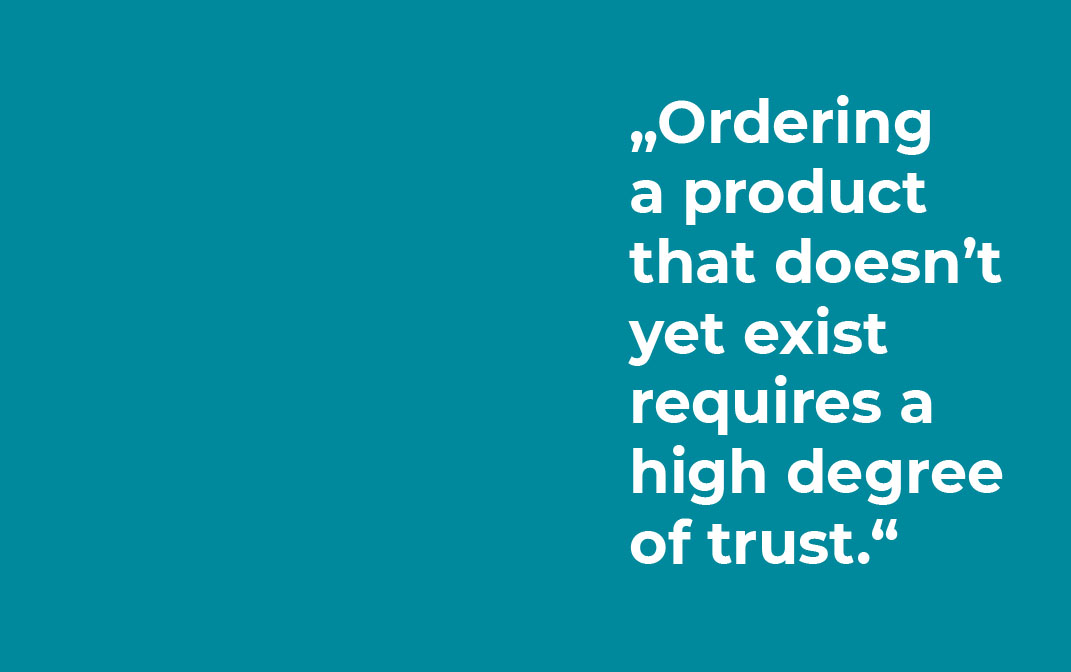
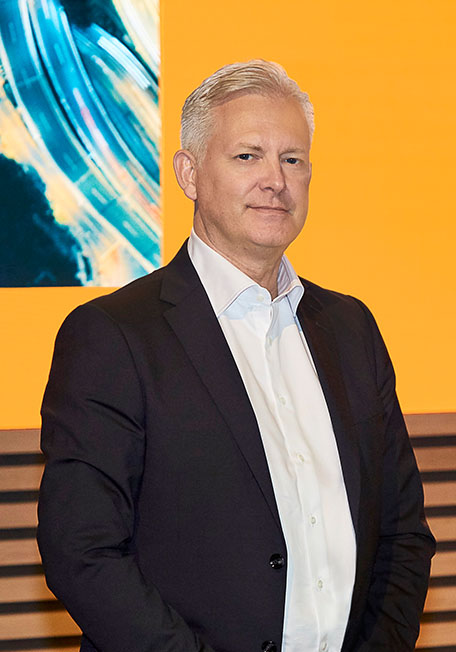
Patrick Meuller
Vice President for Global Procurement and
Innovation, InBev, Belgium/Brazil
Electrified distribution transportation
Whether it’s a Beck’s, Brahma, or Budweiser—whoever reaches for a beer crafted by a brewery from the Anheuser-Busch InBev Group should do so with a clear conscience. For this reason, the largest brewery group in the world in terms of sales recently adopted global sustainability targets that must be implemented by 2025. By then at the latest, greenhouse gas emissions across the entire value chain are set to be reduced by 25%.
The use of electric trucks for beer deliveries is a key initiative to achieve this target. Anheuser-Busch InBev plans to gain experience with electric deliveries in its native Brazil first. Last year, Ambev, the Brazilian subsidiary of ABInBev, signed a letter of intent to order 1,600 zero-emission vehicles from Volkswagen Caminhões e Ônibus. From the end of 2020 onward, these vehicles are to be put into operation gradually. “Ordering a product that doesn’t yet exist requires a high degree of trust,” says Patrick Meuller, Global Vice President Innovation.
The fact that this trust is so earnest is the product of a partnership that dates back to 1992. The partners aim to collaboratively solve the challenges arising from electrified distribution transportation, including the necessary charging infrastructure as well as the economic efficiency. “Our joint aim is to achieve life-cycle cost parity with a truck powered by a combustion engine,” explains Meuller. That is not easy, but Meuller is optimistic: “Both companies have the common goal of utilizing their strong market position in Brazil, their joint innovation capabilities, and strong collaboration to help turn new ideas into reality.”
